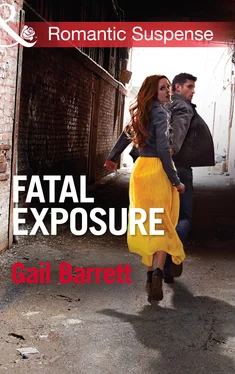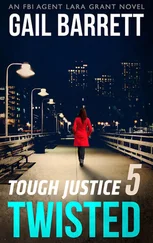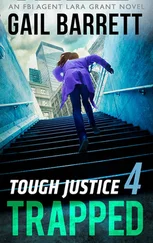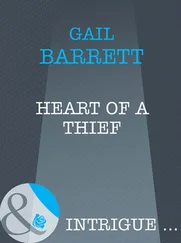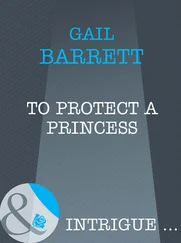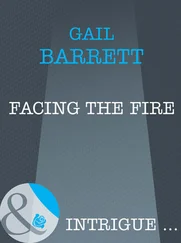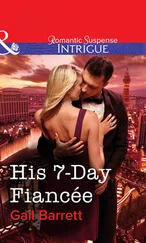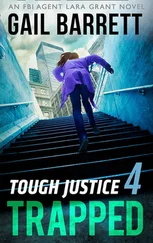A perspective only a former runaway could know.
The exhibit’s grand opening had been mobbed, bringing the bigwigs out in droves. Parker’s boss, Colonel Hugh Hoffman—head of the Baltimore Police Department’s Criminal Investigation Division—had attended, along with his political mentor, Senator Alfred Riggs. Helping teen runaways was one of the Colonel’s signature projects, as was this cold case squad.
Parker switched his attention back to his brother’s photo, dead sure now that the women were the same. But he needed expert verification, something more concrete to go on before he charged off to find her, half-cocked.
Rising, he scooped up the paper and photo, then strode past the cubicles lined up like jail cells, the stained industrial carpet muffling his steps. Too late he spotted his supervisor, Sergeant Enrique Delgado, manning the coffee machine near the exit. Unable to avoid him, Parker slowed.
“Packing it in already?” Delgado asked, his shrewd gaze taking in the newspaper tucked under Parker’s arm. “Another exhausting day at the desk?”
Parker tamped back a spurt of dislike. Nicknamed “Iglesias” for his slick Latin looks and equally slick reputation with women, Enrique Delgado had transferred in from the gang unit when his cover got blown and a shoot-out nearly claimed his life. But Delgado considered this assignment in the cold case squad beneath him—an opinion he voiced freely, not earning him any friends. Even worse, the Colonel had put Delgado in a supervisory position over far more seasoned homicide detectives, like him.
Brownnosing and office politics at their worst.
Parker leveled him a glance. “Yeah, I threw my back out opening a drawer.”
“Whoa, you should put in for hazard pay.”
Ignoring Delgado’s mocking laughter, Parker shouldered open the door to the hall and strode out. Still scowling, he bypassed the snail-paced elevator and made a beeline for the stairwell, then started up the scuffed steps. Technically, he should have informed Delgado about what he’d found. Like it or not, the man was his supervisor—and with Parker’s dubious family background, he couldn’t afford to buck the rules. But there wasn’t a chance in hell Delgado would let him investigate his brother’s death. And Parker had worked for too many years to forfeit his chance at the killer now.
Silencing his protesting conscience, he exited the stairwell two floors later and veered to the nearest desk. “Is Sudhir in?” he asked the secretary, who was speaking into her headset. She nodded and waved him past, her silver rings glinting in the fluorescent light. Seconds later, Parker knocked on the police artist’s door.
“Come in,” Sudhir called out, and Parker strode inside. Balding, his paunch encased in a purple-and-black Baltimore Ravens T-shirt, Sudhir Singh had been a fixture in the precinct for years, long enough to warrant an actual office, albeit with a Dumpster view. He worked a variety of jobs, from sketch artist, interpreter and polygraph test administrator to unofficial coordinator of the underground football pool.
“Hey, Sudhir. You going to the game this weekend?” Parker asked by way of greeting.
“You bet.” Parker waited, muzzling his impatience until Sudhir wound down his tirade over the team’s most recent trade.
“So whatcha got?” he finally asked.
Parker handed him the old photo. “This girl. I need you to age her fifteen years. I think I’ve found a match.”
His attention instantly snagged, Sudhir swiveled toward his equipment, motioning absently in the direction of an empty chair. “Have a seat.”
Parker pulled up the chair and sat. Leaning forward, he locked his gaze on the monitor as Sudhir scanned the photo in. Several seconds later his brother and the runaway girl appeared on the computer screen.
Parker’s belly went taut, the sight of his drugged-out brother prompting the usual litany of self-reproach. He should have done more to save him. He should have found a way to keep him in rehab until he’d stopped destroying his life. He should have fired that useless counselor and searched for someone better, someone who could have found a way to reach him and convince him to stay off drugs.
And he definitely should have anticipated the effect their father’s arrest and suicide would have on Tommy, who’d idolized the man.
But Parker had failed. Only twenty-two himself when his father had died, he’d been too busy salvaging his budding career, trying to prove that he wasn’t corrupt. And his brother had paid the price, running away from home, embarking on a downward spiral of drugs and crime that had ended with his senseless death.
But the day he’d lowered Tommy into the ground, Parker had made a vow. He wouldn’t fail his little brother again. He would bring Tommy’s killer to justice, no matter how many years it took.
His jaw clenched, his gaze still trained on the monitor, Parker watched intently as Sudhir cropped his brother from the photo and zoomed in on the runaway girl. Several keystrokes later, her face filled the screen, those big, bleak eyes a sucker punch to his gut. She didn’t look like a killer; he’d give her that much. She looked too young, too fragile, too harmless. But the most innocent face could hide the blackest heart.
“She looks about twelve, maybe thirteen, in this photo,” Sudhir said, tapping on his keyboard. “So her current age would be what, late twenties?”
“Yeah, that sounds about right.”
Switching to his mouse, Sudhir began using his age progression software to manipulate her face. “What kind of lifestyle does she lead? Does she smoke? Drink? Do drugs?”
“Drugs, probably.” Tommy had only hung out with other addicts toward the end.
“Any other factors that might affect her appearance, like wind or sun damage to her skin?”
Parker frowned. As a runaway, she would have been exposed to the elements. But if this woman really was B. K. Elliot, her photos sold for thousands of dollars a pop—meaning her impoverished days were long gone.
“Let’s say she was homeless during her teen years,” he decided. “Then she straightened herself out and led a comfortable life after that.”
Sudhir added a trace of squint lines around her eyes. “Weight gain?”
Remembering the photo in the newspaper, Parker shook his head. “No, keep her thin.”
“How about her hair?”
He studied the image taking shape on the screen. “Longer, just past her shoulders. And not so curly, just kind of wavy and thick.”
Sudhir continued to work, slowly transforming the scrawny adolescent into a young woman. A hauntingly beautiful woman with a small, feminine nose, elegantly sculpted cheekbones and an intriguingly sensual mouth.
His heart picked up its beat.
But what held him captive were her eyes. Her eyes were wounded, poignant, raw, as vulnerable as those of the children in B. K. Elliot’s photos. They drew him in, sparking a sense of awareness, an oddly tumultuous feeling that went beyond the usual pull of attraction for a pretty face.
Something he had no damned right to feel for a woman involved in his brother’s death.
With effort, he shrugged off the erotic tug.
A moment later, Sudhir released the mouse and sat back, his chair creaking under his weight. He tilted his head to the side. “So what do you think?”
His heart beating triple time, Parker unfolded the newspaper and held it beside the monitor. Sudhir’s low whistle echoed his thoughts. She was a dead ringer for the woman in the paper.
“I think I found a killer.”
Now he just had to track her down.
* * *
Unable to shake the weariness dogging her steps, Brynn Elliot pushed open the door of her Alexandria, Virginia, row house and trudged inside, the blast of heat enveloping her like a caress. God, she was tired. A week spent scouring the streets of New York City in near-freezing temperatures had done her in—and not just physically. It was the suffering that got to her, the violence inflicted on those defenseless kids. And with every passing year the runaways looked younger, more cynical, their wounded eyes filled with more despair.
Читать дальше
